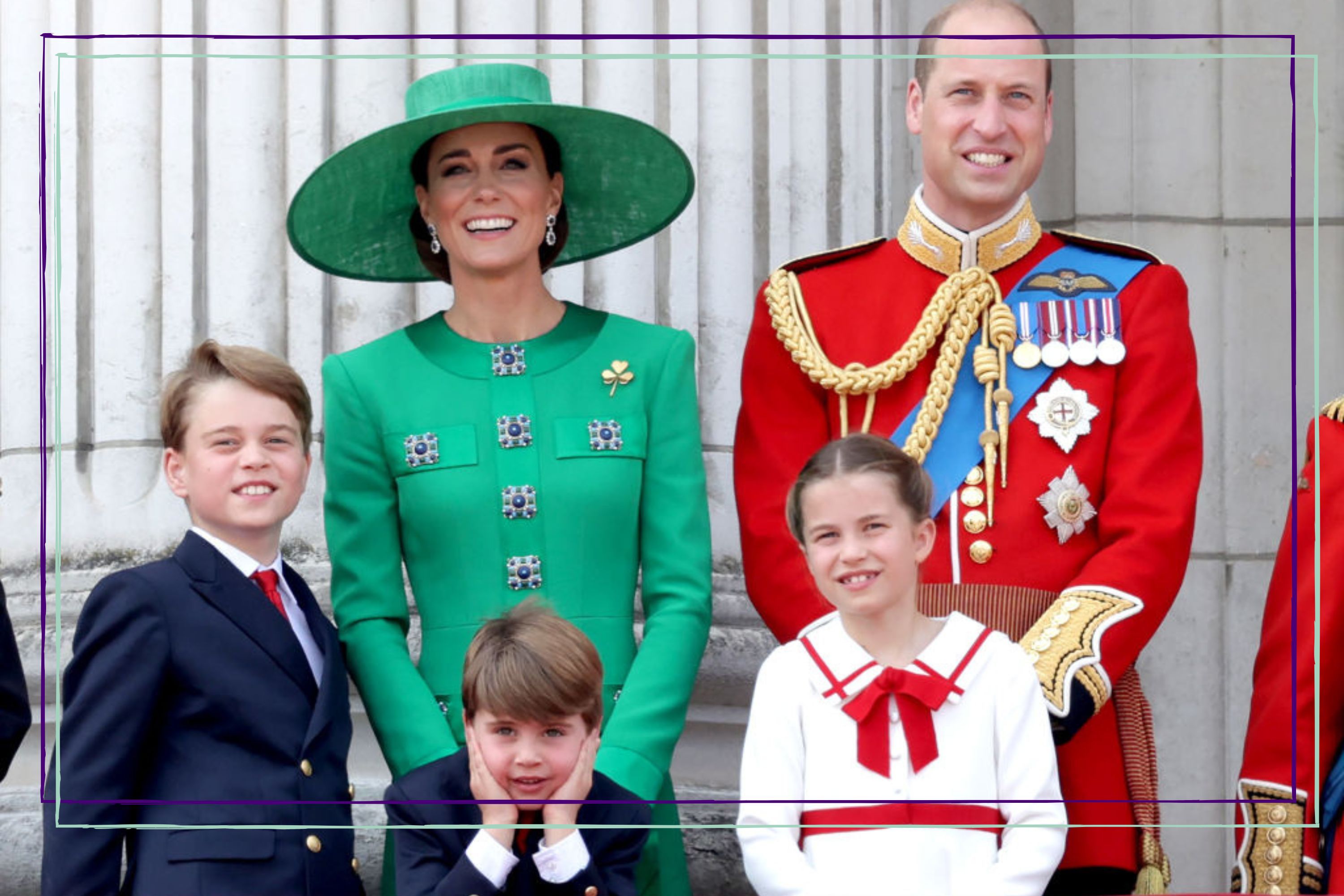
An expert has revealed that Prince William and Kate Middleton use a 'controlled parenting' style when it comes to their three children - but what is controlled parenting?
Each parent will have their own ideas on which parenting style is best for them and their kids, whether they prefer the gentle approach of therapeutic parenting or, on the other end of the spectrum, the more controversial style of tiger parenting.
For Kate Middleton and Prince William, a little more thought likely had to go into their choice of parenting style than with the average parents, with the couple having to prioritise protecting their three young children, Prince George, 11, Princess Charlotte, nine, and Prince Louis, six, from the public eye as well as also bringing them up to be well-rounded human beings.
And now one expert has revealed that they went with the 'controlled parenting' style, believing that it's hands-on, child-friendly approach made it the perfect choice for them - though it had never been used by royals before.
“They are hands-on parents in a way neither King Charles and Princess Diana, nor the late Queen Elizabeth and Prince Philip ever were. From the start they have cared for their children themselves as much as possible with minimal outside help,” former BBC royal correspondent Jennie Bond told OK!.
“This is an unusual and enlightened decision by the couple: you can’t undo the destiny you were born into, but you can make life more of a family affair than an upbringing in palaces and castles would allow.”
Royals aren't the only children who can benefit from the parenting approach, but what exactly does controlled parenting entail and how can other parents use the style?
What is controlled parenting?
Controlled parenting, sometimes also referred to as authoritative parenting, is a hands-on style of parenting that prioritises a child’s needs, with parents reacting to these needs and acting warmly towards their kids while also enforcing clear standards.
It's a take on gentle parenting that includes some stricter boundaries, with parents encouraging their kids to adhere to consistent behavioural standards and, when they break from them, sympathising with their outburst while also explaining gently why they cannot act like that again.
The approach is incredibly hands on, with one or both parents always being around to create a safe environment for their children. In the case of Prince William and Kate Middleton, this approach, according to Jennie Bond, is not only useful to keep their kids happy, but also to protect them from the public eye.
Speaking to OK!, she said, “They have strictly controlled the children’s exposure to the pressures of public life which has bought them a good measure of privacy. They run a fun household, full of noise and bustle, music and dancing where it sounds as if the kids often rule the roost, as in most happy families."
The parenting style has also meant their kids feel free to express their 'worries and emotions' and this, in turn, has helped the youngsters to understand when and why their 'friends are feeling angry or frustrated or unhappy' too, the expert added. Plus, with their parents' gentle approach, they also know how to help their mates when they're struggling, speaking to them gently while also offering help.
If you're trying to decide on a parenting style, or trying to decode what your existing style actually is, we've broken down the seven approaches that are popular at the moment. And, child psychologist Dr Becky explains what ‘sturdy parenting’ is while a psychotherapist reveals what to do if you and your partner disagree on parenting styles.







